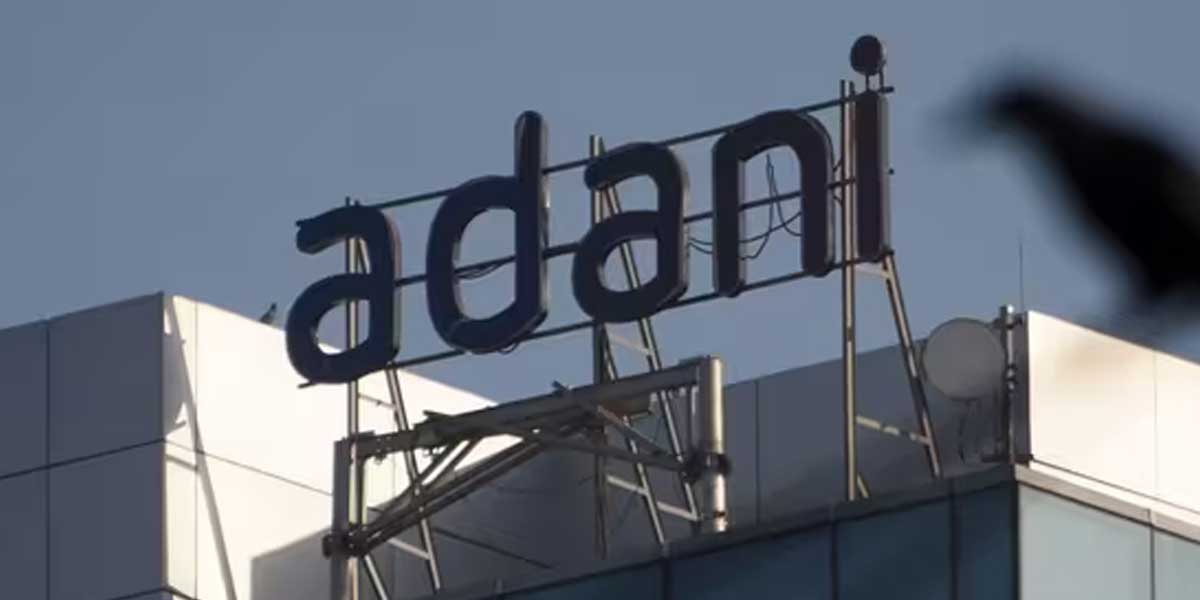Adani Total Gas request for a license to sell compressed natural gas (CNG) for automobiles and piped gas for household kitchens in Noida, a city near the national capital, has been denied by the Petroleum and Natural Gas Regulatory Board (PNGRB) on the grounds that it does not meet the necessary criteria. The PNGRB, in an order issued on July 14, stated that Adani Total Gas fails to fulfill the legal requirements, resulting in the rejection of its application.
Adani has been pursuing a city gas distribution (CGD) license for cities adjacent to the national capital for almost twenty years. According to the regulations, a company can retail CNG or piped natural gas in a city only if it is authorised by the regulator or had prior permission from the central government before the regulator's establishment.
While Indraprastha Gas (IGL), a joint venture of state-owned firms, was authorised for the National Capital Territory of Delhi, Adani has challenged IGL's claim for the surrounding cities. The PNGRB, which was established in 2006, acknowledged the city gas authorisations granted by the central government before its inception.
IGL, which has been retailing CNG in the NCT of Delhi since the late 1990s under the orders of the Supreme Court and the union government, obtained a city gas license. The company also received the same license for Noida in Uttar Pradesh, citing an authorisation letter from the central government dated April 8, 2004.
IGL has been supplying CNG to automobiles and piped natural gas to households and industries in Noida for over fifteen years. On the other hand, Adani Energy (AEL), later renamed Adani Total Gas (ATGL) after French energy giant TotalEnergies acquired a stake in the company, claimed authorisation for developing a local natural gas distribution network (CGD network) in Noida on June 25, 2008.
At the time of its submission, the regulator was unable to process ATGL's application, and the issue of authorisation for Noida was taken to the Supreme Court. In September of the previous year, the apex court dismissed a petition, stating that the regulator was free to proceed with resolving the dispute.
Subsequently, the PNGRB began reviewing the Adani application and rejected it with two out of three adjudicating members voting in favour of rejection. The third member, Ajit Kumar Pande, Member (Legal), expressed the opinion that it would be imprudent for the PNGRB to issue an order since the case was sub-judice, as Adani had filed an application with the appellate tribunal APTEL.
The other PNGRB members, Gajendra Singh and A K Tiwari, voted in favour of rejecting the application. The PNGRB stated in its order, "The Board, while examining the ATGL application, considered the documents submitted with the application dated June 25, 2008, along with their submissions made during the meeting and additional documents submitted thereafter."
"It is worth mentioning that the Board unanimously decided to reject the ATGL application in the 124th Board Meeting held on April 25, 2023," the PNGRB added.
According to the PNGRB, an entity can be considered operating before the establishment of the regulator if it has acquired the necessary equipment to construct the city gate station (CGS). The ATGL application claimed that they had obtained land allotment for the CGS from the Noida authority. However, the company had not procured the required equipment.
"Therefore, the Board concludes that ATGL is not in compliance with the regulation under the PNGRB Act," the order stated.
The PNGRB also mentioned that the Ministry of Petroleum and Natural Gas had allocated gas to IGL for the retail sale of CNG and piped natural gas (PNG) in Noida through a letter dated April 8, 2004. "And AEL was not included in that allocation."
The PNGRB stated that the company had not provided any documentary evidence to support its claim of receiving gas allocation.
"There is no available data regarding the entity's (Adani's) current progress in Noida GA (geographical area) with the PNGRB. From their submission, it is observed that the entity is not presently operating in Noida, and the current condition of their pipeline in Noida is also uncertain," the PNGRB noted.
Furthermore, "it is also observed that although ATGL was allocated land for CNG stations in Noida GA, the entity is not operating any CNG stations in Noida," it added.
The regulator stated that ATGL had been given ample opportunities, and "the board hereby rejects ATGL's authorisation for the development of a CGD network in Noida GA due to non-fulfilment of requirements" under the PNGRB Act.






















